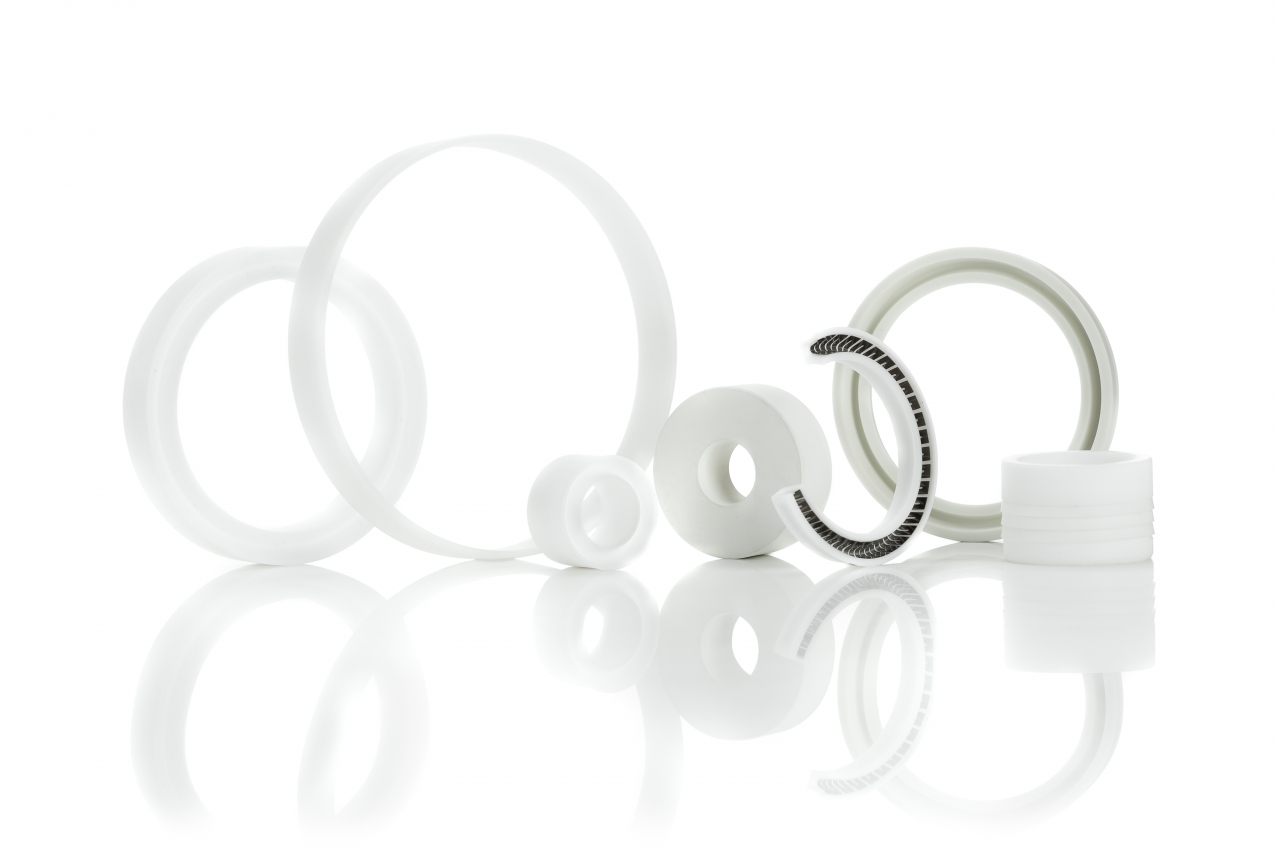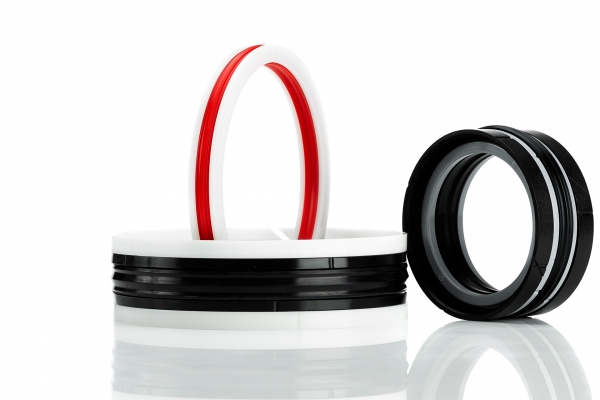-
Homepage
-
Seals and Gaskets
-
Standard Profiles
-
Piston Seal
- PTFE Piston Seal
Piston seals - where can they be used?
Piston seals are seals mainly used in hydraulic and pneumatic cylinders. The purpose of a piston seal is to prevent the penetration of liquids or gases into the cylinder and the escape of liquids or air pressure from the cylinder.
A piston seal consists of an elastic sealing ring located on the piston. The sealing ring is designed in such a way that it forms a tight barrier against the escape of liquids or gases when the piston is moved within the cylinder. Piston seals can be made of various materials, including NBR, FKM and silicone, depending on the requirements of the application.
Single-acting and double-acting piston seals
There are also single-acting as well as double-acting piston seals. The difference is that single-acting piston seals are simpler in construction and thus cheaper. For higher demands in terms of high pressure or greater mechanical stress due to movement and speed at high air pressure or liquid pressure, double-acting seals are recommended. Their construction is more demanding and they are more expensive than single-acting piston seals.
A properly functioning piston seal is important for the efficiency and performance of hydraulic and pneumatic cylinders. A leaking piston seal may result in leakage and loss of fluid or air pressure, resulting in a reduction in the performance of a system or plant. This can also lead to possible damage to the hydraulic or pneumatic cylinder.
Advantages of PTFE as a sealing material for piston seals
PTFE is an abbreviation for polytetrafluoroethylene. It is a synthetic fluoropolymer known by the trade names Teflon and Fluon. PTFE is widely used in applications such as gaskets, lubricants, coatings and electrical components due to its low friction, chemical resistance, electrical insulation and temperature resistance.
1. Chemical resistance:
PTFE is resistant to a variety of chemicals and solvents.
2. Temperature resistance:
It can be used at temperatures from -200°C to +260°C (-328°F to +500°F).
3. High gliding ability:
PTFE has very good lubricity, which makes it a suitable material for seals.
4. Electrical insulation:
PTFE is an excellent insulator, making it ideal for applications where electrical insulation is required.
5. Corrosion resistance:
It is resistant to corrosion and oxidative attack.
6. Longevity:
PTFE has a long service life and is resistant to wear.
7. Hygienic:
It is an odourless and tasteless material and can therefore be used in the food and pharmaceutical industries.



